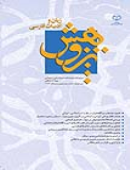الهامهاي شاعرانه
محورهای موضوعی : پژوهشهای ادبیات کلاسیک ایران
1 -
کلید واژه: الهامهای شاعرانه منشأ شعر نظريه ادبي وحي يونگ,
چکیده مقاله :
دربارة الهامهای شاعرانه، دست کم دو دیدگاه کلی وجود دارد: نخست، الهام پدیدهای است فرا طبیعی و بیرون از وجود شاعر؛ دوم الهام نیرویی ذهنی و برخاسته از ضمیر ناخودآگاه شاعر است. نظریهپردازان و شاعران در بارة هریک از این دو نظریه و تأیید یا رد آن بسیار سخن گفتهاند. تفاوت ساختار ذهنی افراد انسانی، طبعاً دریافتهای ذهنی و نیز واکنشهای ذهنی متفاوت را در برابر یک تجربة واحد، در پي دارد. يعني، هر شاعر، گاه در حال و هوا يا لحظاتي خاص، احساس میکند پیامهایی را به گونهای کم و بیش مبهم، از جايي (بيرون يا درون خويش)، دریافت میكند، بیآنکه بداند خاستگاه این پیامها کجاست. این پیامهای تازه و نامشخص، گاه، با انباشتههای ذهنی پيشين شاعر در میآمیزد و این آمیزش به گونهای است که اغلب جدا سازی بخشهایی از آن، با عنوان «الهامهای غیبی» یا «انباشتههای ذهنی»، ناممکن مینماید. بررسی یا تحلیل این روند پیچیده ذهنی که همواره محل نزاع بسیاری از شاعران و نظریهپردازان هنري بوده، موضوع بحث این گفتار است.
There are at least two viewpoints upon the poetry inspiration: 1- inspiration is a phenomenon beyond the nature and outside the poet existence, 2- inspiration is a power originated from the poet unconscious self. Theorisians and poets have spoken a lot on these two theories to accept for and against them. As the human being mind structures are not the same, naturally their treatments toward and conceptions about the same experience, be it objective or abstract, will be different. In other words, each poet, in special situation, understand the message more or less ambiguous. He does not know the origin of it. These new and to some extend ambiguous messages are mixed with the poets presuppositions in such a way that separation of “God given inspirations” or “mind made ones” is generally impossible. In this article tries to study this mind complex procedure which was generally subject of a lot of poets and art theorists’ discussion.


